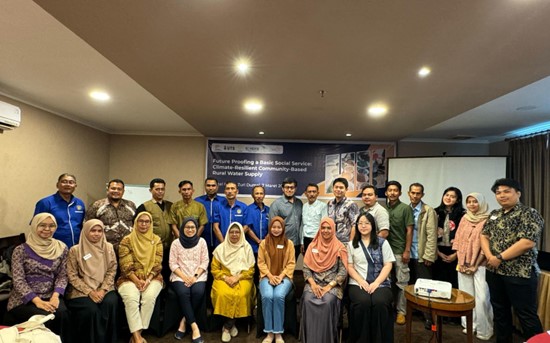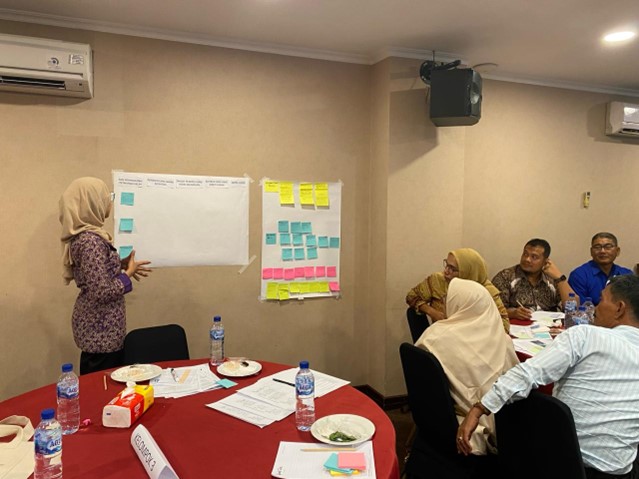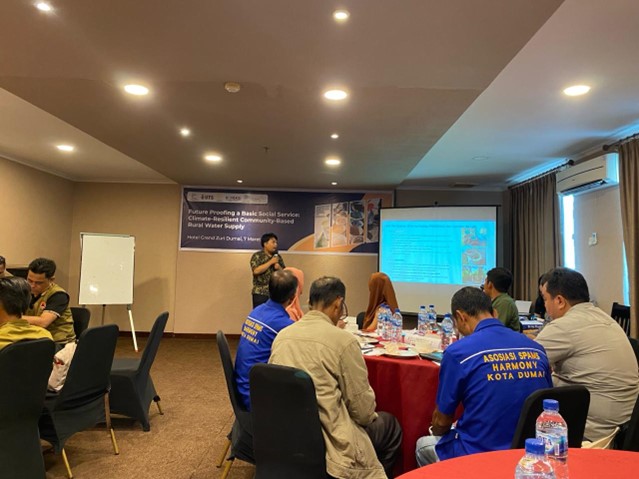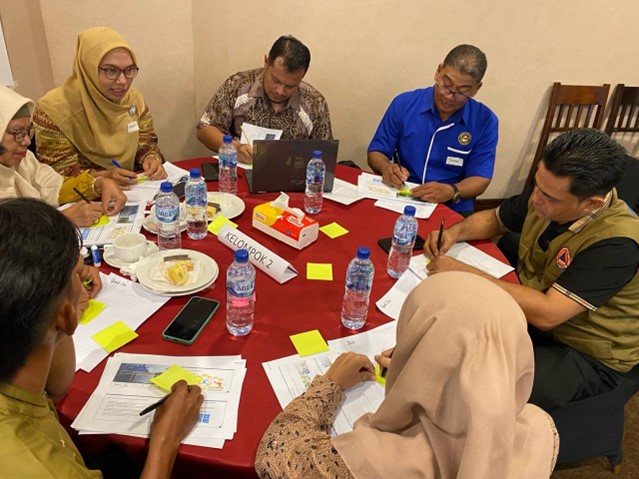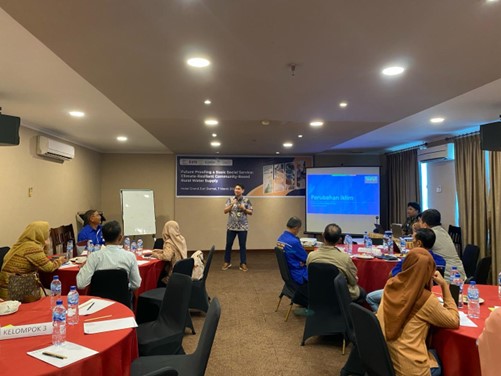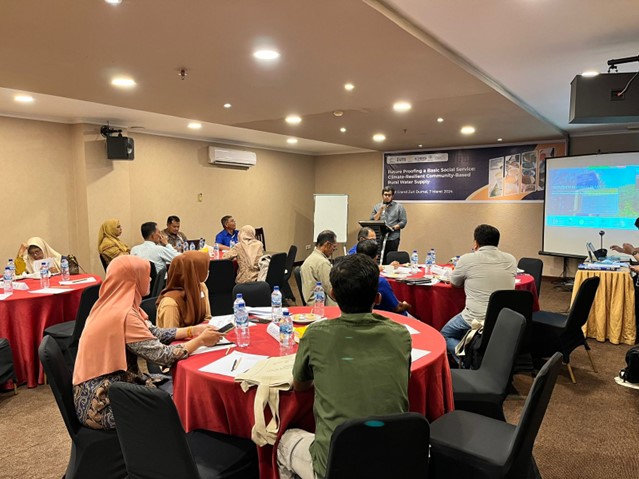The Environmental Engineering Study Program (PSTL) at FTUI has once again collaborated on research with other institutions, namely the University of Technology Sydney-Institute for Sustainable Futures (UTS-ISF), the Center for Regulation Policy and Governance (CRPG), and Gadjah Mada University (UGM). This research, funded by the Australia-Indonesia Knowledge, Technology, and Innovation Connection (KONEKSI) program, is related to the resilience relationship of the Community-Based Drinking Water Supply and Sanitation Program (PAMSIMAS) to climate change.
Last year, PSTL FTUI conducted data collection through questionnaires and surveys in nine PAMSIMAS in Dumai City. The data processing results were presented at a workshop held at the Grand Zuri Hotel, Dumai (07/03). This workshop aimed not only to introduce the research concept but also to discuss the impacts of climate change and findings in Dumai City, stimulate discussions, gather aspirations, and develop collaboration opportunities.
Various stakeholders from Bappeda, the Public Works Department, KPSPAMS, the Harmony BPSPAMS association, the Health Department, and the Dumai City BPBD participated in the workshop. They not only listened to presentations of research results but also actively participated in panel discussions and groups.
Insani Taqwa Saili, Head of the Economic, Natural Resources, Infrastructure, and Regional Development Division at the Dumai City Regional Development Planning Agency, expressed his hope for cooperation to enhance climate resilience in PAMSIMAS in the city. Meanwhile, representatives from the Public Works Department, H. Indra Gunawan, emphasized the need for education to the community in maintaining groundwater stability considering the increasingly evident climate threats.
Dr. Cindy Rianti Priadi, ST., MSc., Head of the Environmental Engineering Study Program (PSTL) FTUI, explained that this research aims to fill gaps in monitoring the climate resilience of PAMSIMAS, which is currently limited. She hopes that the research findings can serve as a basis for more effective improvement efforts.
During the presentation session, Rioneli Ghaudenson, S3 PSTL FTUI and a member of the research team stated, “Based on the Bappenas framework related to climate-resilient water supply systems, nine PAMSIMAS in Dumai have good access to technology and expert human resources and can efficiently manage water resources. However, the implementation of water supply systems is not in line with climate and disaster initiatives, and there is a lack of emergency services during climate disasters. From the nine PAMSIMAS in Dumai, climate risks identified are droughts and tidal floods. Overall, most PAMSIMAS do not experience a decrease in water flow during the dry season.”
The presentation of findings from the nine PAMSIMAS in Dumai was the focus of the workshop. Discussions on how to respond to these findings, as well as steps that can be taken to improve the climate resilience of PAMSIMAS, were the core of the discussion. From these discussions, various action ideas emerged to strengthen PAMSIMAS resilience.
“We believe that this research is not only an academic effort but also a real contribution to addressing the real challenges faced by society, especially regarding water resilience in the face of climate change. We sincerely hope that this research will continue smoothly until June, and we truly hope that the tools we have developed will become a solution accessible to all Community-Based Drinking Water Supply and Sanitation (KPSPAMS) groups throughout Indonesia, to provide real and widespread benefits for the welfare of society,” said Prof. Dr. Heri Hermansyah, S.T., M.Eng., IPU, Dean of FTUI.
The workshop was attended by 18 participants consisting of representatives from Bappeda Dumai, the Dumai City Public Works Department, KPSPAMS (Community-Based Drinking Water Supply and Sanitation), the Harmony BPSPAMS association, the Dumai City Health Department, and the Dumai City Regional Disaster Management Agency (BPBD).
The entire event was filled with enthusiasm to maintain the resilience of PAMSIMAS in the face of increasingly evident climate challenges. Participants from various agencies showed their commitment to engaging in necessary improvement efforts. It is hoped that this workshop is not the end of the journey but the beginning of a series of concrete actions to strengthen PAMSIMAS resilience in Dumai City and provide useful guidance for PAMSIMAS throughout Indonesia.
***
Public Communication Office
Faculty of Engineering, University of Indonesia

